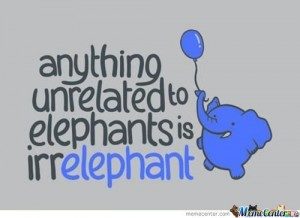When evaluating piece-of-cake-ratios, FINALS are – naturally – of extreme relephants. Even for intrinsically motivated people such as a typical LLM-student at Yale, it is often the form and difficulty of final exams or papers as well as certain anticipated grading habits that, to a large extent, determine the stress and anxiousness associated with a course, i.e. its subjective piece-of-cakeness. As a follow-up to the last post I should therefore write about FINALS.
To sum it up, reading period and finals (12/8-12/22) were depressing. Why? Because nobody wanted to play with me. This complaint does not mean that I was one of the ninety-percenters (see ON PIECES OF CAKE). Instead, as in most other things, I would locate myself in the center (i.e. as a fifty-percenter). This centripetal – rather than centrifugal – tendency of mine, however, makes me loath loosing balance. During FINALS this desire for balance translates into the wish to – once in a while – decompress after a long and intense day of work over a nice dinner, or a beer, or some dancing, or some much-needed sleep.
This should be an obvious piece of life-wisdom for anyone wishing to stay healthy and sane. At Yale it is not, and this, for once, is not a joke. From what we were told in our introductory week, almost fifty percent of Yale students make use of the university’s free mental health counseling at some point in their campus career. Please don’t misunderstand me: I do not mean to stigmatize anyone who uses these services. Nonetheless, this number is disconcerting. If almost fifty percent of – compared to the general population – super-privileged (intellectually, economically, culturally) students don’t feel confident enough to handle their lives without professional help, something is off-balance. Yale’s extreme and extremely invigorating drive, that so much fascinates me, borders on driven-ness.
What does this have to do with my FINALS? The Yale spirit is contagious, spreading even to the Law School and to parts of my dear LLM-class. Not only did bars and restaurants stay empty (even emptier than what is usual at New Haven). I was even told that the hallways of the library were sometimes populated until as late as 2 am. These cannot be healthy life choices.
Do you know what completes this absurdity? All the fuzz is being made for papers and exams that are either ungraded or graded according to a scale that, in practice, – from what we heard – knows only two kinds of grades: pass or high pass. All this self-inflicted suffering takes place at a law school that refuses to rank its students in order to avoid or mitigate exaggerated and useless competitiveness among its student body.
I do not mean to advocate laziness. I admire the ambition of my classmates. I probably am quite similar in this regard. All I demand – even during FINALS – is that SOMEBODY PLAY WITH ME.


